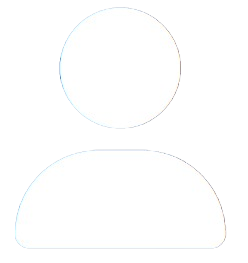JD-Next Student FAQs

Frequently Asked Questions
Student FAQs
Yes, JD-Next is designed for anyone with an interest in the legal system. We run multiple courses throughout the year. Click here for a complete schedule of upcoming JD-Next courses and tests.
Your investment in JD-Next is as low as $349 if you are enrolled at least 30 days prior to the start of the course when the price increases to $399. Your investment includes your 8-week course, entrance test, score reporting and all course materials. There are no additional costs associated with our program.
All students must be paid in full prior to starting their course. A full refund will be provided for any written request received within five days after the official start date of the course. To request a refund, a student must email us at jd.next@aspenpublishing.com.
The JD-Next needs-based scholarship program is designed to assist aspiring law students from low-income backgrounds. Each year, a limited number of students will be selected to become JD-Next Scholars and will receive a $299 credit to be applied to their JD-Next tuition. We have designated a set number of seats for scholarship recipients for each of our 2025 course start dates. If selected, JD-Next will provide you with a $299 voucher to be used for your course.
Please visit the JD-Next Scholarship Information for details.
For questions, please contact jdnextscholarship@aspenpublishing.com.
Course FAQs
JD-Next measures relevant learning potential, not just general cognitive assets. Even more, JD-Next is also a proven bridge program that prepares you for law school! In scientific papers, we have found that participation in the JD-Next course, and especially completion of the course, causes a substantial improvement in law school grades, and improves students' confidence in their first year of law school.
People come to JD programs with a wide range of backgrounds, including many different undergraduate educational experiences. This lack of common preparation may disadvantage students who come to law school with less exposure to legal concepts, language and reading skills, and analytical frameworks. This program will expose you to the materials and methods of legal education, preparing you for success. Even better, the course is bundled with the test, so you do not have to worry about buying a prep course on your own or worrying that other students have paid more to prepare for the test.
While helping you develop your skills in case reading and analysis, this course uses a few of the classic contracts law cases, which also appear frequently in law schools across the country. Because JD-Next primarily teaches the underlying skills required to succeed in any doctrinal law class, it may focus on different aspects of contracts cases and concepts than your contracts law professor.
The beginning of the course introduces critical “Case Brief Workshops” for law school, explicitly and directly showing participants how to read a case and to extract the key rules and facts. After completing the skills workshops during the first four weeks of the course, students will move onto doctrinal law and the application of the skills practiced in the skills workshops. Without purporting to preview an entire 1L Contracts course, the readings include classic cases (e.g., Hawkins v. McGee), with simple reading quizzes keyed to each one. Consistent with optimal curricular design principles, each lesson also includes a written “problem of the day”, so students begin practicing the application of their newly acquired concepts.
The course also includes videos, broken into dozens of smaller parts, including concept introductions, lectures, and takeaways. The final test will be largely multiple choice but will also include a writing component.
Overall, we expect you to spend roughly 6-10 hours per week. Students can work at their own pace in completing the classes each week, though we strongly recommend students complete the modules as scheduled each week.
JD-Next is fully online. You can access the course anywhere you have computer and internet access. It will be primarily an asynchronous course (students log on at their own schedule) with synchronous virtual office hours.
We recommend students stay in sync with the course schedule week by week, which students can complete from anywhere they have internet access. If necessary, students can work ahead to stay on track with the course.
The course is self-paced with a dedicated facilitator. Students will receive immediate feedback for all multiple-choice questions and exercises completed, as well as for discussion posts during skills workshops. For larger written assignments, students will be guided through a self-evaluation process using both guided rubrics and model answers.
You’ll receive video explanations from experts in the field throughout the course. Plus, you’ll receive feedback on writing assignments as well as access to Course Assistants during weekly office hours to get your questions answered.
Test FAQs
At the end of the course, you will receive your score and will have the opportunity to designate which law schools will receive your score directly from JD-Next.
Both law school admissions offices that wish to receive applications with only a JD-Next score (i.e., no LSAT score) and applicants who wish to submit as their admissions test score only a JD-Next test score should be aware of proactive steps that need to be taken by the law school.
Law Schools:
A law school that wants to be able to receive a JD-Next score in lieu of an LSAT score from an applicant must proactively waive in the LSAC CAS system the LSAC CAS system’s default requirement that the application contains an LSAT score.
Law schools are receiving email notifications from Aspen Publishing, which runs JD-Next, when they have JD-Next scores available from their applicants. A law school can use those notifications as a prompt for the law school to waive the LSAT score requirement for that applicant.
Check the updated list of schools who accept JD-Next here.
Students:
We advise law school applicants who wish to submit only a JD-Next test score to confirm with the admissions offices of the law schools to which they will apply that those law schools have undertaken the steps needed to be able to receive the applicants’ JD-Next scores (and these applicants’ law school applications more generally).
Please review our JD-Next Test Accommodations Guidelines for information about applying for test accommodations. The Guidelines page includes links to the relevant form for submitting your request. If you have any additional questions about the process, please contact accommodations@aspenpublishing.com.
Once you are enrolled in the course, JD-Next will offer two date options for the test. You must select one of these dates. Further correspondence will be provided during the course in preparation for your test.
We are partnering with a major provider of testing services, a global education technology company with more than 12 million users worldwide, which creates industry-leading comprehensive learner records (CLRs) that include personalized assessments and best-fit job opportunities for learners. The test will be conducted with test security, test-taker identification confirmation, and proctoring. We will also be able to provide appropriate accommodation for disabilities. There is a large bank of test questions, and the test will be administered digitally.
If you have an emergency and are not able to take your test as scheduled, contact us as soon as possible at jd.next@aspenpublishing.com. We can advise on potential options.
We provide Score Report interpretation guidance to law schools here: JD-Next Score Report.
JD-Next participants who believe that they will retake the JD-Next course and test within the same application cycle should let law schools to which they are and will be applying in that cycle know that additional JD-Next scores possibly will be submitted to these law schools. You might retake the test (and course) later and achieve a higher score that these law schools should consider before making their admissions and financial award decisions.
Admissions FAQs
Your JD-Next score will be valid for five years.
Over one quarter of all ABA law schools have now been granted a variance to use JD-Next as an admissions test, and the list of law schools is growing. That list can be found here. If a law school does not yet have a variance, they still may accept your JD-Next score in combination with the LSAT or GRE.
The ABA recently commissioned a report that confirmed prior research showing JD-Next to be a valid and reliable predictor of first year grades as required by ABA Standard 503.
This is just to say that the list will continue to grow, so if the law school you hope to attend is not yet on the list of schools that have been granted a variance, we recommend sending your results anyway to augment your application package.
While many law schools have been eager to receive a variance so JD-Next can be used in admissions decisions, each law school is different, and many are still finalizing their policies regarding how they will use JD-Next.
Some may want to use it as their primary criteria, while some may want to use it in combination with your score from the LSAT or GRE.
Our recommendation:
1. Reach out to every admissions department on your list, explaining why you chose to take JD-Next and calling attention to your dual JD-Next credential; your completion of the eight-week course and your test score.
2. Follow up to ask how that school intends to use your results. Also be sure to ask if there is anything else they need from you to decide whether to admit you to their incoming class.
JD-Next allows you to demonstrate your aptitude and your commitment to JD study, and in doing so it reduces or eliminates bias. The research shows that a student who completes our course prior to applying to law school is a more educated and committed potential student than one who does not who will increase their law school GPA, on average by .20.
 HELP
HELP
 ENROLL NOW
ENROLL NOW
 LOGIN
LOGIN
